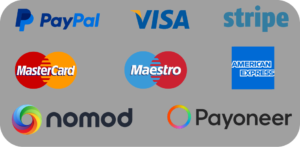Congratulations, your book is published. You are now about to enter the world of book marketing in the USA, where your literary masterpiece competes against celebrity memoirs, romance novels, and more.
The bitter truth is that the American book market doesn’t care about your feelings, your two-year writing journey, or how much your critique group loved chapter seven. It cares about one thing: can you get the right readers to notice your book exists and convince them to spend money on it? Learning how to market a book effectively in this competitive market is essential.
Here’s why you need to promote your book successfully:
The Reality of American Book Buyers
American readers are easily distracted and have very short attention spans. These readers usually discover books through Amazon’s “customers who bought this also bought” suggestions, which means the algorithm is basically your new best friend or worst enemy.
Geography matters more than you can imagine. Try selling literary fiction in small-town Texas or cowboy romance in Manhattan, and you will learn that book promotion in the USA means understanding that America isn’t one market, it’s fifty different ones with completely different tastes.
Start Marketing Before You Even Finish Writing
Many authors believe that marketing begins after book publishing, but that’s wrong. By the time your book goes live, you should already have people excited about it, begging for it, and ready to buy it the moment it’s available.
Book promotion tips from successful authors all start with the same advice: build your audience while you’re still writing. This doesn’t mean spamming people about your upcoming book; it means becoming someone worth following, someone whose opinion on books and life people value.
Email lists consistently outperform social media followers. A thousand email subscribers who open your messages will outsell ten thousand Instagram followers who barely remember why they followed you. Social media platforms come and go, but email is forever.
Amazon Owns Your Success
Amazon has the power to control your success. Their algorithm is pickier than a food critic with trust issues, and it judges your book in the first 30 days after publication. Mess up that window, and you’re basically invisible forever.
Reviews are not only nice to have—they’ve become essential for survival. Books with fewer than 20 reviews might as well not exist in Amazon’s world. However, you can’t buy, beg for, or trade them without risking account suspension. It’s like trying to get popular in high school while following all the rules.
Social Media: Pick Your Platform Wisely
Book marketing experts love to tell you to be on every platform, but this won’t work for your book promotion. Instead, choose one or two platforms where your readers actually spend time, and focus on those well.
Instagram is great if your book has visual appeal and you can create engaging bookish content. X (formerly Twitter) is perfect for engaging with readers and building your author brand. TikTok works if you’re comfortable creating video content about your writing process and book themes.
Facebook works well if you’re writing for people over 40, in which case it can be very effective for book promotion. LinkedIn is surprisingly good for non-fiction, especially for business and professional development books.
The point is to promote your book on social media platforms that can benefit your success.
Traditional Media Is Still Relevant
Podcasts are the new radio, and authors who figure out how to be engaging guests can reach thousands of potential readers with each appearance. The secret is not talking about your book directly; it’s being so fascinating that people Google you afterward and discover you’ve written something they want to read.
Local media still matters, especially for non-fiction. Your hometown newspaper might not have the reach of major media outlets, but those readers are way more likely actually to buy your book and tell their friends about it.
Book bloggers have more influence than most authors realize. Find the ones who review your genre, read their actual posts to understand what they like, and approach them like the professionals they are, not like desperate authors begging for attention.
How to Market a Book That Makes an Impact
Testing different approaches is crucial because what works for romance doesn’t work for business books, and what worked last year might be completely useless now. The landscape changes faster than fashion trends, and yesterday’s winning strategy is today’s waste of money.
Track everything, but avoid becoming overly focused on metrics. Social media likes feel good, but they don’t pay bills. Focus on metrics that correlate with sales: email subscribers, website traffic, and most importantly, actual book sales.
Effective book marketing strategies share a common thread: they prioritize building relationships over promoting products. People buy books from authors they like, trust, or want to support. Become someone worth supporting.
Building Your Author Marketing Plan for the Long Haul
Every successful marketing plan recognizes that your first book is basically an expensive business card for your second book.
Promoting a book in the USA requires consistency over perfection. Authors who show up regularly, provide value consistently, and build genuine relationships with readers create businesses that grow stronger with each release.
Plan for seasons and cycles. Beach reads sell in summer, cozy mysteries peak in fall, and business books do well in January when people are focused on professional development. Time your releases and marketing pushes accordingly.
The Bottom Line
Book marketing in the USA is part art, part science, and mostly just showing up consistently until something works. Your book won’t market itself, algorithms won’t magically discover it, and readers won’t seek you out just because you wrote something good. But if you’re willing to treat marketing like a skill worth learning rather than a necessary evil, you might just build something that lasts.


